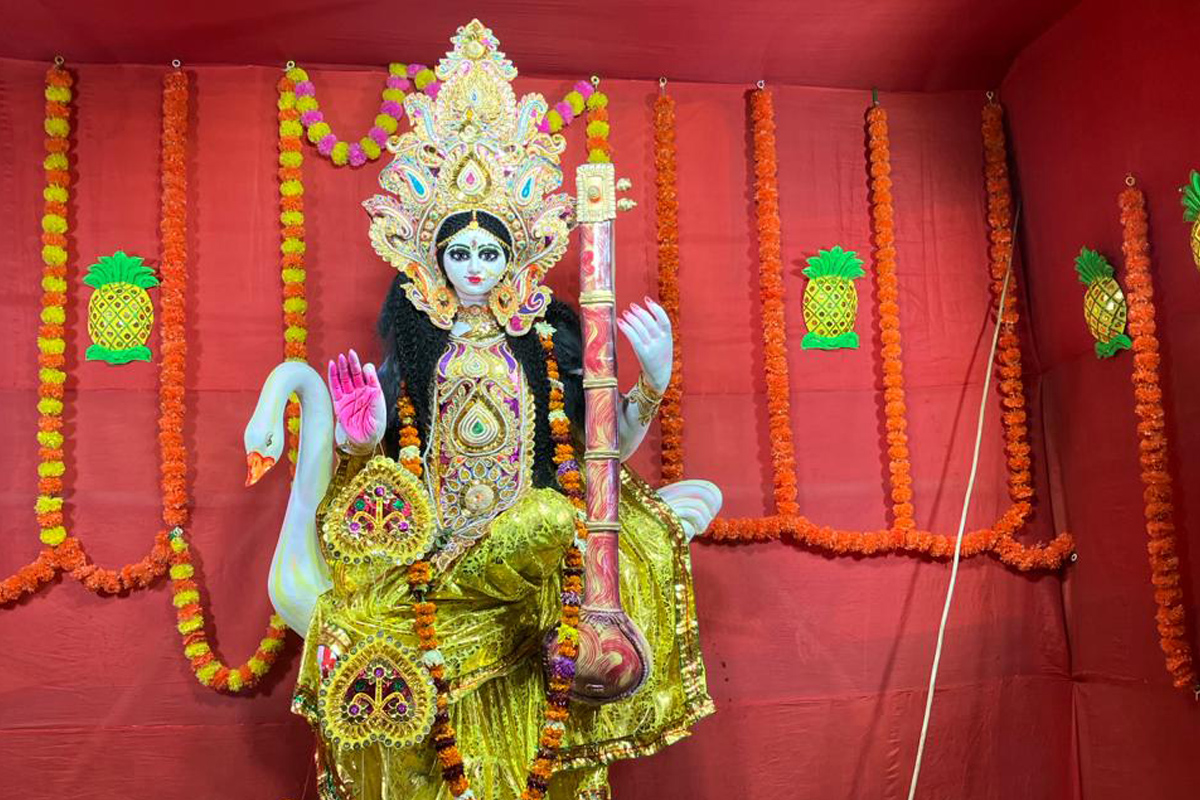Why do people go on pilgrimages? Distinct from other travel, these are journeys in quest of something spiritual. For knowledge of ultimate truth, perhaps, or maybe for the atonement of sins. Whatever the reason, interestingly, the idea of creating centres of worship at the place where someone is already situated rather than going on long, arduous journeys to reach a destination is ingenious.
Some Hindu gods and goddesses, for instance, are often worshipped at home, even though there may be temples dedicated to them in many places throughout the country.
Advertisement
Saraswati, goddess of wisdom, learning, education, knowledge, music and the arts, is one of them.
“That way, she is really chilled out,” says a schoolboy. He is at a “para’r pujo” or a neighbourhood celebration of Saraswati Puja, the day of the worship of the goddess. “I don’t have to go far to pray.”
A classmate chips in, “And boy, does he need to pray. He hasn’t studied at all, and now he will be grovelling at the goddess’ feet.”
It becomes increasingly evident with each passing puja that the young have virtually usurped Goddess Saraswati. Their conversations are revelations. “After all, she is the goddess of learning, and that is the pursuit of young people,” said a girl, a first-year student at a city college. “She is our goddess.”
“Though learning is a lifelong pursuit, Ma Saraswati has always been associated with the young,” points out Anath Taran Ghoshal, a Hindu priest.
This year’s Saraswati Puja, of course, coincided with Valentine’s Day, the day that is celebrated globally as the day of love and another day on which the young feel a sense of entitlement.
A third-year college student said he celebrated by gifting a red rose to his girlfriend and laying a stick of white “rajanigandhas” at the feet of his favourite goddess. They both “identify” with the “cool goddess.”
In fact, she is included in their jests and jokes and knows that she will not take umbrage.
Says a schoolgirl, “I don’t believe in gods or goddesses, but I’m not taking any chances today, and I will pray to Ma Swaraswati so that I don’t flunk my exams.”
LoL—to use one of the favourite phrases of people her age. For the oldies out there who don’t know, it is the shortened form of “laugh out loud.” They use it to indicate anything from the hilarious to the utterly ridiculous. Anyway, before I could adequately recover from her unabashed confession and her “strictly-on-a-need-to-basis” appeasement of the Divine Powers, she added that she was particularly concerned about her chemistry papers, and so that’s the textbook that found its way on top of the pile of tomes that were kept at the feet of the goddess by children in her neighbourhood.
The pilgrimage of the youth is here. At the pandal of Goddess Saraswati. Children, boys and girls as young as ten and less, dressed in dhotis and sarees, run around her, books in hand, praying for her blessings. Teenagers turn out in their finery and flirt as they sit around her as though she is a friend. College students gather around her, discussing ideas, and suddenly she is a professor.
Swaraswati looks on. She is Wisdom.
















